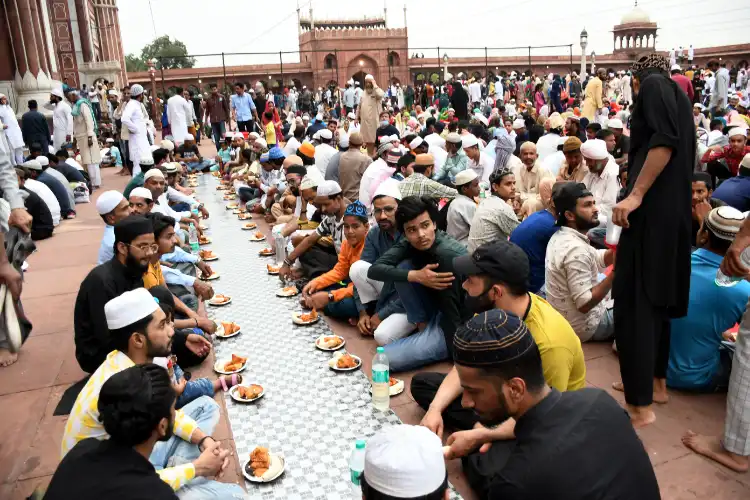
Eman Sakina
As we open the Quran, the first chapter starts with ‘Alhamdulillah’ which is generally translated as “all praise is for God.” The word Alhamdulillah signifies gratitude in our everyday lives. Hence, when someone asks how we are, Muslims often respond with, “Alhamdulillah.” Similarly, Islam teaches us to be thankful throughout the day: for waking up from sleep, after eating our meals, drinking water, etc. In this way, one’s entire life revolves around gratitude to God.
Friday Musings
In Chapter 55 of the Quran, titled “The Lord of Mercy,” God asks the same question thirty-one times, “Which of the favors of your Lord will you deny?” God has created us and then made this world for us. We are getting benefits from all His creations such as the sun, moon, clouds, rain, air, grasslands, animals, plants, rivers, oceans, and countless other bounties of the natural world! After realizing all this abundance, how can a sensible person be anything but thankful to God?
People often talk about how important it is to be thankful, but they usually do not mention to whom we should be giving thanks. Think about it. When you say: “Thank You,” you’re usually saying it to someone. So, who deserves our thanks, our gratitude, and our praise?
Allah says in the Quran,
“In the name of Allah, the Entirely Merciful, the Especially Merciful. [All] praise is [due] to Allah, Lord of the worlds -” [Quran 1:1-2]
Oftentimes, we are not conscious of our need to be thankful. Though subconsciously, it does come through. What do I mean? I will give you an example:
You are late for work, you are rushing to get out the door, and you can’t find your keys. You are searching everywhere looking between books and papers, behind couch pillows, under household pets, and then suddenly you stop, and you feel your coat pockets, “Oh, thank God!” You find the keys and immediately, you remember Allah. Most people do not even realize what they’re saying, even nonreligious people, and even atheists will do this.
We need to be more conscious and aware of the fact that Allah is the one that deserves our thanks and we need to maintain that thankfulness throughout the day.
Allah says:
“So, remember Me; I will remember you. And be grateful to Me and do not deny Me.” [Quran 2:152]
Being thankful can be shown in three main ways:
Thankful heart: which is achieved by harboring and intending good for all of Allah’s creation.
Thankful tongue: this involves celebrating the praises of Allah and expressing gratefulness to Allah with our tongue.
Thankful actions: are fulfilled by using our external senses to do good with our actions.
Ultimately, it all comes back to God. Therefore, when someone does something good or meritorious, as Muslims we say: “Masha Allah” which means, God has willed it. This phrase is a way of showing appreciation while at the same time recognizing that it is Allah who makes all things possible.
Finally, keep in mind that when we thank Allah, we are the ones who benefit.
“And whoever is grateful is grateful for [the benefit of] himself.” [Quran 31:12]
Allah does not need our thanks, but it is we who need Him. Without Allah, we would be lost.
“And if not for the favor of Allah upon you and His mercy, you would have been among the losers.” [Quran 2:64]
ALSO READ: Naureen Ayesha's startup on women's hygiene products makes waves
God loves us 70 times more than a mother loves her child, according to the tradition of Prophet Muhammad. God has also sent numerous prophets over the course of human history to guide us. Now it is up to us to be grateful and to have faith in Him – in our hearts, with our tongues, and through our actions.
